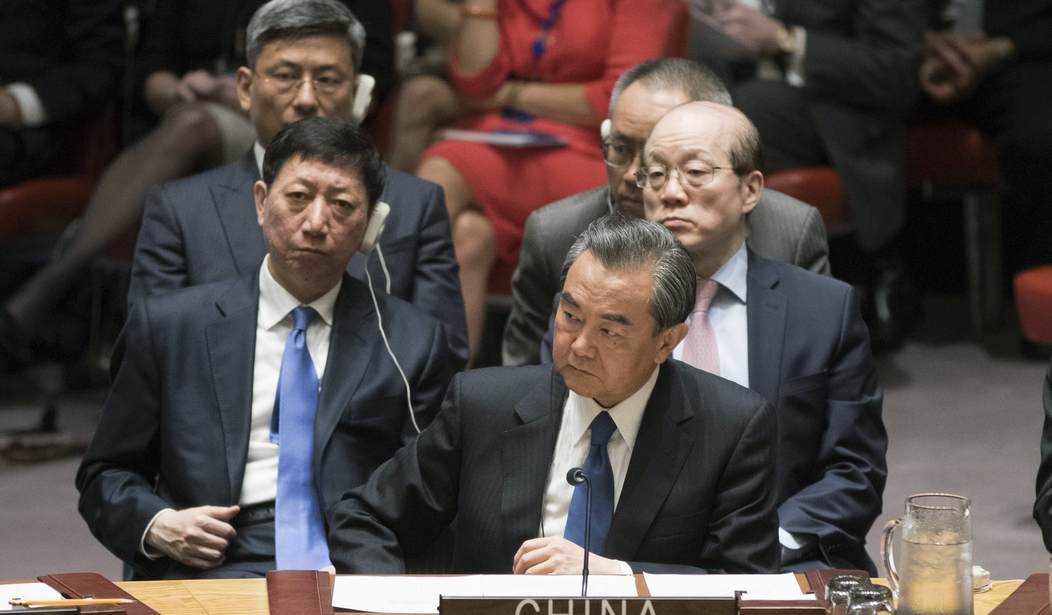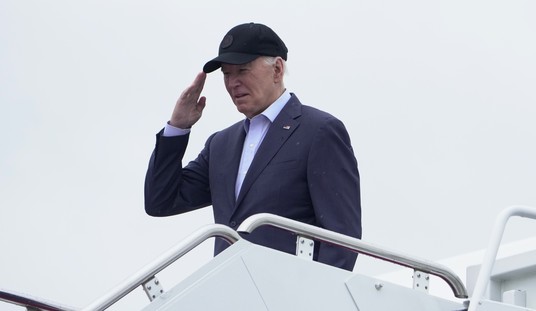At a ministerial session of the United Nations Security Council today, Secretary of State Rex Tillerson said member nations need to step up to the plate with a more intense pressure campaign to stop North Korea and the regime’s nuclear program.
But even though President Trump has expressed utmost confidence in recent days that China was now going to be helpful to rein in Pyongyang, the PRC said it wasn’t their responsibility to bring their entrenched ally — China accounts for 90 percent of North Korean trade — to heel.
“The key to solving the nuclear issue on the peninsula does not lie in the hands of the Chinese side,” Chinese Foreign Minister Wang Yi told the council.
“It is necessary to put aside the debate over who should take the first step and stop arguing who is right and who is wrong,” Wang added. “Now is the time to seriously consider resuming talks.”
Tillerson shot back, “We will not negotiate our way back to the negotiating table with North Korea, we will not reward their violations of past resolutions, we will not reward their bad behavior with talks.”
The secretary of State emphasized during his remarks that “the threat of a North Korean nuclear attack on Seoul, or Tokyo, is real” and “it is likely only a matter of time before North Korea develops the capability to strike the U.S. mainland.”
“Indeed, the DPRK has repeatedly claimed it plans to conduct such a strike. Given that rhetoric, the United States cannot idly stand by. Nor can other members of this council who are within striking distance of North Korean missiles,” he said. “…For too long, the international community has been reactive in addressing North Korea. Those days must come to an end.”
“Failing to act now on the most pressing security issue in the world may bring catastrophic consequences.”
Tillerson said the U.S. goal is “not regime change,” and “nor do we desire to threaten the North Korean people or destabilize the Asia Pacific region.” He added that U.S. aid to North Korea would resume “once the DPRK begins to dismantle its nuclear weapons and missile technology programs.”
He called on member states to fully implement punitive measures passed at the UN and for countries “to suspend or downgrade diplomatic relations with North Korea.”
“We must increase North Korea’s financial isolation. We must levy new sanctions on DPRK entities and individuals supporting its weapons and missile programs, and tighten those that are already in place. The United States also would much prefer countries and people in question to own up to their lapses and correct their behavior themselves, but we will not hesitate to sanction third-country entities and individuals supporting the DPRK’s illegal activities,” Tillerson continued.
China “alone,” he stressed, “has economic leverage over Pyongyang that is unique, and its role is therefore particularly important.”
“All options for responding to future provocation must remain on the table. Diplomatic and financial levers of power will be backed up by a willingness to counteract North Korean aggression with military action if necessary. We much prefer a negotiated solution to this problem. But we are committed to defending ourselves and our allies against North Korean aggression,” he vowed.
“…I realize some nations for which a relationship with North Korea has been in some ways a net positive may be disinclined to implement the measures of pressure on North Korea. But the catastrophic effects of a North Korean nuclear strike outweigh any economic benefits.”
Tillerson and Wang met for bilateral discussion hours after the Security Council meeting. Before their sit-down, Tillerson said he appreciated “the constructive way in which China has engaged with the United States to address the challenges on the Korean peninsula that are common to both of us.”








Join the conversation as a VIP Member